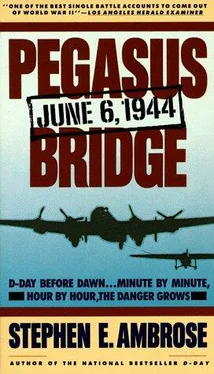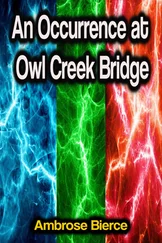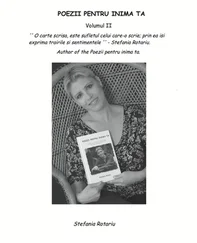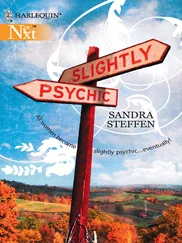Stephen Ambrose - Pegasus Bridge
Здесь есть возможность читать онлайн «Stephen Ambrose - Pegasus Bridge» весь текст электронной книги совершенно бесплатно (целиком полную версию без сокращений). В некоторых случаях можно слушать аудио, скачать через торрент в формате fb2 и присутствует краткое содержание. Жанр: История, на английском языке. Описание произведения, (предисловие) а так же отзывы посетителей доступны на портале библиотеки ЛибКат.
- Название:Pegasus Bridge
- Автор:
- Жанр:
- Год:неизвестен
- ISBN:нет данных
- Рейтинг книги:5 / 5. Голосов: 1
-
Избранное:Добавить в избранное
- Отзывы:
-
Ваша оценка:
- 100
- 1
- 2
- 3
- 4
- 5
Pegasus Bridge: краткое содержание, описание и аннотация
Предлагаем к чтению аннотацию, описание, краткое содержание или предисловие (зависит от того, что написал сам автор книги «Pegasus Bridge»). Если вы не нашли необходимую информацию о книге — напишите в комментариях, мы постараемся отыскать её.
Pegasus Bridge — читать онлайн бесплатно полную книгу (весь текст) целиком
Ниже представлен текст книги, разбитый по страницам. Система сохранения места последней прочитанной страницы, позволяет с удобством читать онлайн бесплатно книгу «Pegasus Bridge», без необходимости каждый раз заново искать на чём Вы остановились. Поставьте закладку, и сможете в любой момент перейти на страницу, на которой закончили чтение.
Интервал:
Закладка:
On Friday, November 13, Howard decided to spend the night with Joy, as Oxford was on the route to Birmingham. He brought with him two Oxford residents. Corporal Stock and his new second-in-command. Captain Osborne, together with his batman. Although Stock was his driver, Howard insisted on taking the wheel, because, although a good driver, Stock did not drive fast enough.
At about 5:30, just as dusk was falling, they met a Yank convoy of six-ton trucks on a narrow, twisting road. They were on a right hand bend. Suddenly, with no warning, Howard 'saw this six-ton truck in front of me. He'd lost his place in the convoy and he was obviously leap-frogging up, and it was all over so quickly.'
They had a head-on crash. Howard was jammed behind the steering-wheel, and both legs, his right hip, and his left knee were smashed up. Osborne suffered similar injuries, but the other two escaped with cuts and bruises.
Howard was taken to hospital in Tidworth, where he was on the critical list for nearly six weeks. Joy made many long journeys to visit him. In December, using his connections with the Oxford police, Howard got himself moved to the Wingfield hospital in Oxford. He remained there until March, 1945.
D Company went on to fight in the Battle of the Bulge, then led the way on the Rhine crossing and participated in the drive to the Baltic. Most of the glider pilots were at Arnhem, then flew again in the Rhine crossing.
When Howard came out of hospital, he was using crutches. By the time his convalescent leave was nearly over, so was the war in Europe. But when he reported for duty, he learned that the Ox and Bucks were going to the Far East for another glider operation. The battalion commander asked Howard if he could get fit in time. It seemed the authorities wanted to promote him and make him second-in-command of the battalion.
Howard immediately started a training programme on a track near his home. On the second day of trying to run laps, his right hip seized up and the leg went dead. He had not allowed his injuries to heal properly, and the strain on the hip from the running caused it to jam, which stopped the nerves running down the leg. Howard went back into hospital for further operations. When he got out this time, the war in Asia was over.
He wanted to stay in the army, make a career of it, 'but before I knew where I was I was kicked out of the army, invalided out. My feet just didn't touch'.
Howard went into the Civil Service, first with the National Savings Committee, then with the Ministry of Food, and finally with the Ministry of Agriculture. In 1946 he had an audience with the King at Buckingham Palace. On June 6, 1954, the tenth anniversary of D-Day, he received a Croix de Guerre avec Paime from the French government, which had already renamed the bridge. From that day onward, its name has been 'Pegasus Bridge'. Later the road between the bridge and the LZ was named 'Esplanade Major John Howard'.
Howard served as a consultant for Darryl Zanuck in the making of the film, The Longest Day. Played by Richard Todd, he had a prominent role in the film, which of course delighted him. He was less happy about Zanuck's penchant for putting drama ahead of accuracy: Zanuck insisted that there had to be explosives in place under the bridge, and it was he, not Howard, who prevailed at the bridge on this occasion. In the film, the sappers are seen pulling out explosives from under the bridge and throwing them into the canal. Zanuck also romanticised the arrival of Lovat and his Commandos, quite falsely depicting their bagpipes playing as they crossed Pegasus Bridge.
Howard retired in 1974, and he and Joy live in a small but comfortable home in the tiny village of Burcot, about eight miles from Oxford. Terry and Penny live close enough for the grandchildren to pay regular visits. The Howards do not travel much, but John manages to return to Pegasus Bridge almost every year on June 6. His hip and legs are so mangled that he needs a walking-stick to get around, and then only moves with great pain, but all his enormous energy flows out again when he sees his bridge, and greets Madame Gondree, and starts talking to those of his men who have made it over for this particular anniversary. Sweeney and Bailey are usually there, and sometimes Wood and Parr and Gray and always some of the others.
Von Luck spent the remainder of the autumn of 1944 fighting General Le Clerc's French armoured division. In mid-December he was involved in the fighting at the southern end of the Battle of the Bulge, and was surprised at how much the Americans had improved since February, 1943, when he had fought them at Kasserine Pass. In the spring of 1945, 21st Panzer went to the Eastern front, to join in the defence of Berlin. In late April, by then encircled, von Luck was ordered to break through the Russian lines, then hold it open so that Ninth Army could get out and surrender to the Americans. Before attacking the Russians, von Luck called what was left of his regiment together, and gave a small talk.
'We are here now', he began, 'and I think that it is more or less the end of the world. Please forget about the Thousand Year Reich. Please forget all about that. You will ask. Why then are we going to fight again? I tell you, there's only one reason you are fighting, it is for your families, your grounds, your homeland. Always think about what will happen when the Russians overcome your wives, your little daughters, your village, your homeland.'
The men fought until they were out of ammunition, and von Luck told them, 'Now it's finished, you are free to go wherever you want'. Von Luck himself went to report to the commander of the Ninth Army, and was captured by the Russians. They sent him to a POW camp in the Caucasus, where he spent five years as a coal miner. In 1951 he moved to Hamburg, where he became a highly successful coffee importer.
Beginning in the mid-1970s, the Swedish royal military academy has brought von Luck and Howard together to give talks on Normandy battles and leadership. They hit it off from the first, and have grown to like each other more with each annual appearance. Today they could only be described as very good friends. 'So much for war', Howard comments.
Sergeant Hickman spent the remainder of the war in England as a POW. He liked the country so much that when he was shipped home, he applied for a visa. It was granted, and he emigrated to England, changing his name to Henry, and got a job, married a British woman, and settled down. One day in the early 1960s one of his friends at work told him that there was a British parachute reunion going on that night, and as an old paratrooper himself he might want to attend. Hickman did. There he saw Billy Gray, the same man he had faced at 0020 hours on June 6, 1944, in front of the cafe, with his machine-gun blazing away.
Hickman did not recognise Gray, but during the evening Gray pulled out some photographs of Pegasus Bridge and started to explain the coup de main. Hickman looked at the photos. 'I know that bridge', he said. He and Gray got talking. Later they exchanged visits, and a friendship developed. Over the years it grew closer and deeper, and today they are intimates. They kid each other about what lousy marksmen they were in their youth. 'So much for war.'
General Sir Nigel Poett, KCB, DSO, had a distinguished military career. Now retired, he lives near Salisbury. Major Nigel Taylor, MC, is a solicitor living near Malvern. Richard Todd continues to pursue his highly successful acting career. Major Dennis Fox, MBE, soldiered on for ten years after the war, then became an executive with ITV. Colonel H. J. Sweeney, MC, also stayed in the army until he was fifty-five; today he is the Director-General of the Battersea Dogs' Home near Old Windsor, and the head of the Ox and Bucks regimental veterans' association.
Читать дальшеИнтервал:
Закладка:
Похожие книги на «Pegasus Bridge»
Представляем Вашему вниманию похожие книги на «Pegasus Bridge» списком для выбора. Мы отобрали схожую по названию и смыслу литературу в надежде предоставить читателям больше вариантов отыскать новые, интересные, ещё непрочитанные произведения.
Обсуждение, отзывы о книге «Pegasus Bridge» и просто собственные мнения читателей. Оставьте ваши комментарии, напишите, что Вы думаете о произведении, его смысле или главных героях. Укажите что конкретно понравилось, а что нет, и почему Вы так считаете.




![Stephen Ambrose - Citizen Soldiers [Condensed]](/books/346737/stephen-ambrose-citizen-soldiers-condensed-thumb.webp)




